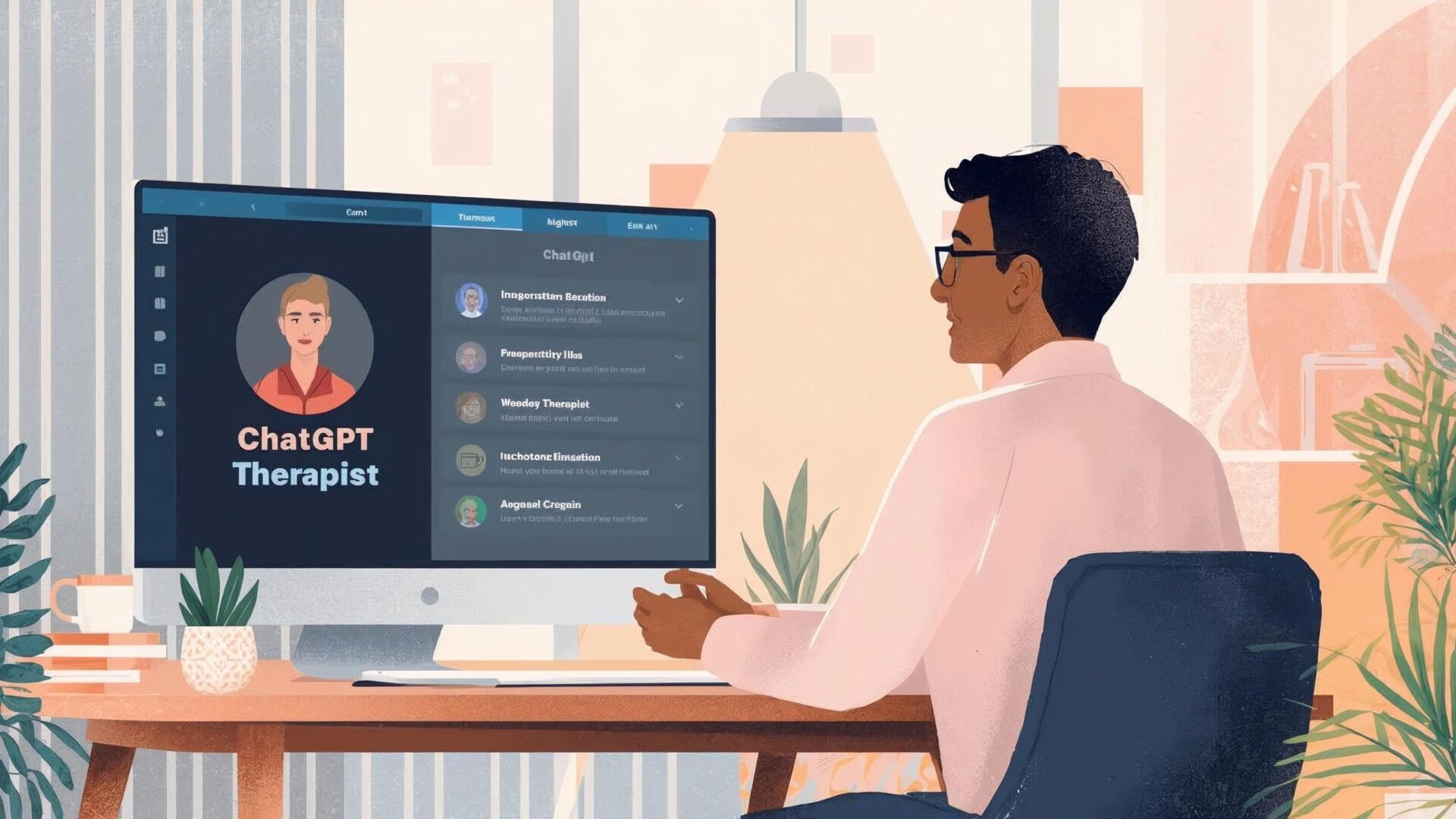Would you ever tell ChatGPT your darkest thoughts? It might sound strange, but millions already are. According to a recent UK survey, around one in five Britons have turned to AI chatbots for mental health support. They type into a box what they’d never say aloud: anxiety, loneliness, heartbreak, guilt.
For many men, it can feel like a place without judgement, price tags, or waiting lists. But as AI tools like ChatGPT grow more conversational and confident, a new question has emerged: can a chatbot ever replace the depth of a human therapist?
The Allure of AI
There’s an undeniable appeal to the idea of a digital confidant. AI platforms are available 24/7, they never look surprised, and they won’t tell you to book an appointment. For men who struggle to open up, that can be liberating. You can type exactly what you’re feeling at 2am — when your mind’s racing and no one’s awake to listen.
In fact, a 2024 YouGov study found that 34% of American adults feel comfortable sharing mental health concerns with an AI chatbot instead of a therapist. For younger users, that figure rises even higher. The appeal makes sense: anonymity, control, and instant access. It’s easy to see why this kind of digital venting feels like progress. When you’ve grown up believing that strength means silence, typing can feel safer than talking.
You can experiment with honesty without the weight of someone’s gaze. And for men on the fence about therapy, AI can act as a soft entry point. You start with a chatbot. Then, maybe, you start to realise you do want a real person to talk to.
Where It Falls Short
Still, there’s a hard limit to what a language model can offer. ChatGPT doesn’t understand what you mean; it predicts what you might say next. It doesn’t feel empathy, but rather it imitates it. Prof Dame Til Wykes of King’s College London put it bluntly, saying: “AI is not at the level where it can provide nuance … it might actually suggest courses of action that are totally inappropriate.”
This lack of nuance matters. Therapy isn’t just about words, it’s about tone, timing, and emotional attunement. A therapist notices the pause after you say, “I’m fine.” They spot the shift in your breathing. A chatbot can’t.
The British Association for Counselling and Psychotherapy (BACP) warned last year that while tools like ChatGPT weren’t designed for mental health, “therapy and companionship” have become their most common use case — a worrying mismatch. And therapists are already reporting that clients arrive quoting AI-generated advice, sometimes confused or misled by what they’ve read.
There’s also the question of trust and data. Unlike a therapist, an AI doesn’t guarantee confidentiality in the same way. Your conversations may be stored, analysed, or used to refine algorithms. That might sound abstract, until you remember these are your most personal thoughts.
Why Human Connection Still Matters
Therapy works because of something machines can’t simulate: relationship. A good therapist doesn’t just process what you say — they feel with you, calibrating empathy in real time. They hold you accountable, celebrate your growth, and sometimes challenge the stories that keep you stuck.
Real therapy isn’t about information. It’s about transformation. It’s the process of being witnessed — of having another person stay with you in the silence, the discomfort, and the uncertainty until something shifts. AI can reflect language. But only a human can reflect you.
At Men’s Counselling Service, our therapists work with men every day who thought they couldn’t open up, and maybe believed that talking wouldn’t help or that therapy wasn’t for them. What they find is that being heard and understood by another human being changes everything.
The Future of AI in Therapy
AI can listen. But only a person can really hear you. If you’ve been experimenting with chatbots or searching for clarity, maybe it’s time to talk to someone who can go deeper. Therapy is easier to access than you think — and more powerful than you imagine. Find a therapist who understands men.

